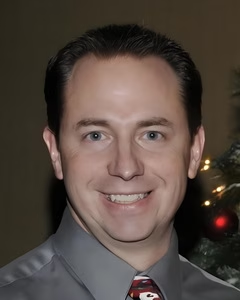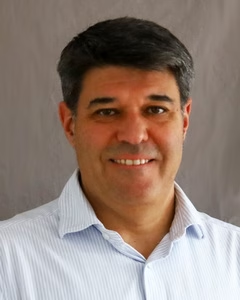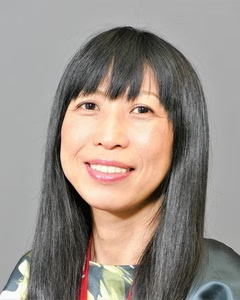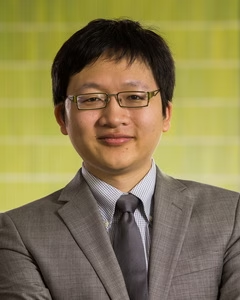
About the Plenary Session
The APEC Plenary Session continues the long-standing tradition of addressing issues of immediate and long-term interest to the practicing power electronic engineer. The APEC plenary presentations are delivered from invited distinguished professionals, followed by an interactive Q&A at the end of each presentation.
Date: Monday, March 23, 2026
Time: 1:45 PM – 4:45 PM
Location: Hemisphere Ballroom, Henry B. González Convention Center
APEC 2026 Welcome And Conference Opening
1:45 PM – 2:15 PM
- Introduction: Stephanie Watts Butler, APEC 2026 Plenary Chair
- Opening Welcome Message: Jin Wang, APEC 2026 General Chair
- Plenary Introduction: by Dhaval Dalal, APEC 2026 Program Chair
Plenary Presentations
2:15 PM – 2:45 PM
HVDC Distribution For Future AI Data Centers

Brian Heber
Director of Engineering, Global Product Integrity
Vertiv, USA
Abstract: Artificial Intelligence is reshaping the data center landscape, driving unprecedented demands for power density and efficiency. This paradigm shift challenges traditional AC architectures and opens the door for High Voltage Direct Current (HVDC) distribution from grid to chip. With Solid-State Transformers (SST), HVDC offers compelling benefits—reduced conversion losses, improved efficiency, and higher power density—making it an attractive solution for next-generation AI data centers. However, the transition is far from simple. Protection, safety, and regulatory standards for DC systems remain complex, and the global supply chain for HVDC components is still evolving. This plenary session will explore the technical foundations of HVDC architectures, examine real-world deployment challenges, and discuss strategies to overcome barriers in protection, reliability, and safety. Join us for a forward-looking conversation on how HVDC can redefine data center power delivery and what it will take to make this vision a reality.
Brian Heber is an accomplished engineering leader with over 30 years of experience driving innovation in power electronics, embedded control, and power systems for the data center industry. As Director Advanced Technology at Vertiv, Brian has led global teams in the research and development of advanced control algorithms, including sliding mode control, fuzzy logic control, repetitive control, and state feedback controllers, enabling robust and high-performance solutions for critical infrastructure. He pioneered the adoption of software-in-the-loop (SIL) and hardware-in-the-loop (HIL) simulation tools using MATLAB and Simulink, accelerating the validation and deployment of complex control strategies. He is also dedicated to mentoring the next generation of engineers, serving as an adjunct professor of electrical engineering at The Ohio State University. Brian has a master’s degree in electrical engineering from The Ohio State University. Brian is an inventor on over 25 patents. His career is defined by technical excellence, technology leadership, and a commitment to developing high-performing teams.
2:45 PM – 3:15 PM
Enabling Copernicus: Power Electronics At The Heart Of Earth’s Health Monitoring

Arturo Fernandez
Head of the Power Systems,
EMC and Space Environments Division
European Space Agency
Abstract: Copernicus is the Earth observation component of the European Union’s Space program. It provides accurate, timely and easily accessible information to improve the management of the environment, understand the effects of climate change and ensure civil security. Copernicus provides a unified system through which vast amounts of data from upwards of 30 satellites are fed into a range of thematic information services designed to benefit the environment, the way we live, humanitarian needs and support effective policy-making for a more sustainable future. This plenary speech will highlight current and future power technologies enabling Copernicus. Power electronics are essential for satellite energy management, battery health, and reliable power distribution. As avionics advance, they require lower voltages and higher currents, while scientific instruments need specialized supplies. The rise of large satellite constellations demands innovative solutions to cut costs and speed up delivery without sacrificing reliability. GaN switches and digital control are transforming space power electronics, enabling more efficient, robust systems for next-generation satellites.
Arturo Fernandez (IEEE SM’98) earned his M.Sc. and Ph.D. degrees in Electrical Engineering from the Universidad de Oviedo, Spain, in 1997 and 2000, respectively. He began his academic career at the Universidad de Oviedo as an Assistant Professor in 1998, advancing to Associate Professor in 2003. In 2007, he joined the European Space Agency (ESA) as a power conversion engineer, driving his research effort towards advancing power electronics for space missions. In 2015, Arturo was appointed Head of the Power Management and Distribution Section at ESA, where he coordinated the Agency’s power conversion technology roadmaps and provided technical leadership across all satellite development programs. By 2025, he became Head of the Power Systems, EMC, and Space Environments Division, overseeing ESA’s R&D efforts in solar generators, energy storage, electromagnetic compatibility, harness systems, and the effects of space environments on satellite platforms. Arturo’s research interests span high-efficiency switching-mode power supplies, low output voltage converters, DC/DC converter modeling, and advanced power systems for space applications. He has authored more than 100 publications in leading power electronics conferences and journals, contributing significantly to the field’s advancement.
3:15 PM – 3:45 PM: Break
3:45 PM – 4:15 PM
Why Now Is The Time To Address Power Semiconductor Sustainability

Shiori Idaka
Head of European Research Cooperation Centre
Mitsubishi Electric Europe B.V., Germany
Abstract: Sustainability integrates three critical elements—environmental protection, economic growth, and social welfare—to ensure enduring progress for future generations.
Today’s challenge is clear: How can we address social needs, achieve economic growth, and improve quality of life, all simultaneously? Power electronics is emerging as a key solution, creating “trade-ons” rather than trade-offs. Sustainability policies for power electronics products are emerging from multiple fronts, now extending to power semiconductors as critical components. Yet precisely because these strategies are so vital, they must be pursued cautiously, avoiding hype and rushing into regulations. The industry is currently in a learning phase, but rushing leads to mistakes; hesitating leads to loss of precious time. The discussion on sustainability has only just started. The time is now to gather information, exchange ideas, and build a shared understanding and a common direction across the industry. This keynote will examine the current status, highlight the challenges, and present several examples of practical trials.
Shiori Idaka joined Mitsubishi Electric in Japan in 2002, working at the Advanced Technology R&D Center where she developed semiconductor packages including memory, MEMS, RF module and power modules. In 2008, she was appointed to lead the development of SiC power modules as a key member of the power module development project. In 2016, she moved to Mitsubishi Electric Europe B.V. in Germany, where she launched and now directs the European Research Cooperation Center, leading R&D projects focused on power module applications. To date, she has successfully managed over 90 collaborative projects with companies and research institutions across Europe and beyond. Shiori Idaka actively contributes to the power electronics academic community, serving on multiple prestigious committees including: ECCE Europe organizing committee, PCIM Advisory board, IWIPP organizing committee, TPC member in ISPS, CIPS, ICSCRM, and SMART.
4:15 PM – 4:45 PM
MagNet Challenge: The Serendipity When Power Magnetics Meets AI

Minjie Chen
Associate Professor
Princeton University, USA
Abstract: Magnetics play important roles in almost all power electronics systems. The multidimensional and interconnected complexities of material physics, geometric structure, operating conditions, and circuit functionality make magnetic components a major bottleneck in high-performance design. Data-driven methods and artificial intelligence (AI) techniques have demonstrated strong capabilities in modeling complex physical systems. Large-scale, high-quality, well-labeled data sources are the foundations of modern AI. A collaborative environment enables the community to break traditional knowledge barriers and unlock forward-looking breakthroughs. This presentation will explore the historical evolution and emerging intersections between power magnetics and artificial intelligence, and introduce the MagNet Challenge as an international collaborative research platform that bridges materials and design, data and algorithms, academia and industry, and the past and future of power electronics.
Minjie Chen is an Associate Professor of Electrical and Computer Engineering at Princeton University, where he leads the Princeton Power Electronics Research Group. He is currently on sabbatical from Princeton as a visiting professor at TSMC and Nvidia Research. He received his Ph.D. in EECS from MIT and his B.S. in Electrical Engineering from Tsinghua University. He is a recipient of the IEEE PELS Richard M. Bass Outstanding Young Engineer Award, a Princeton SEAS Junior Faculty Award, the NSF CAREER Award, the MIT Dimitris N. Chorafas Ph.D. Thesis Award, and more than 15 prize papers from top IEEE journals and conferences. He is a PELS Distinguished Lecturer, a co-Editor-in-Chief of IEEE Transactions on Power Electronics, and was listed multiple times on the Princeton Engineering Commendation List for Outstanding Teaching. He is currently chairing IEEE PELS Technical Committee 10: Design Methods and AI Tools, and has been leading the IEEE PELS International Challenge in Design Methods for Power Electronics – the MagNet Challenge – since 2023.

